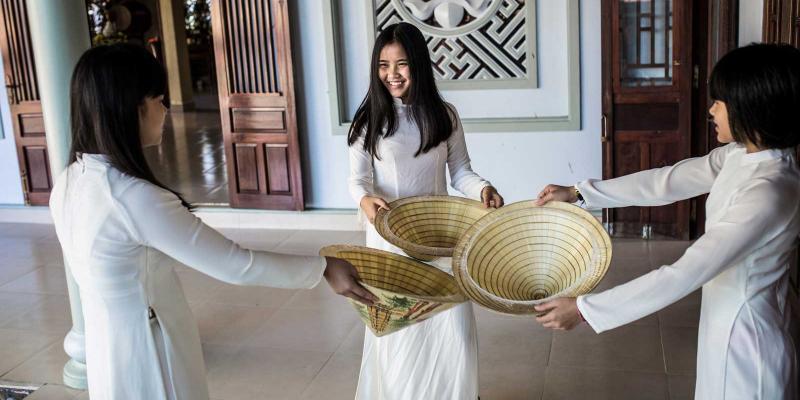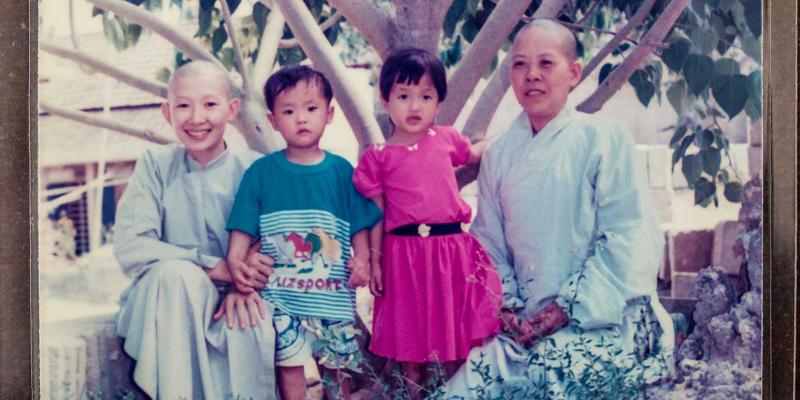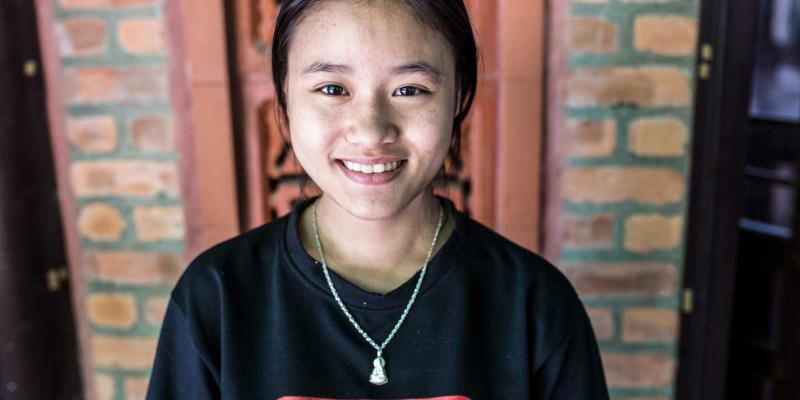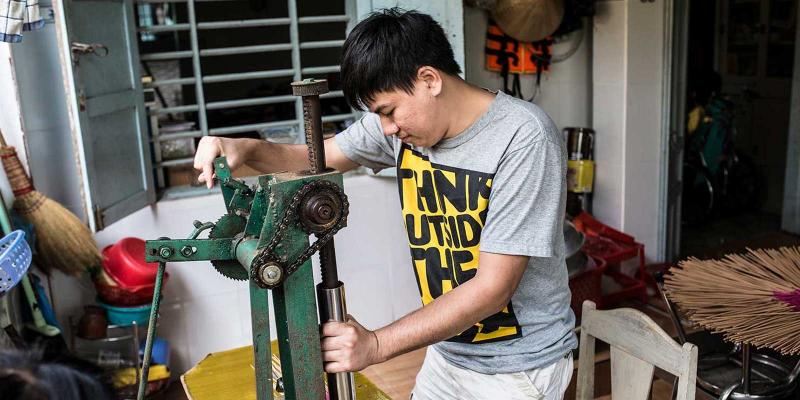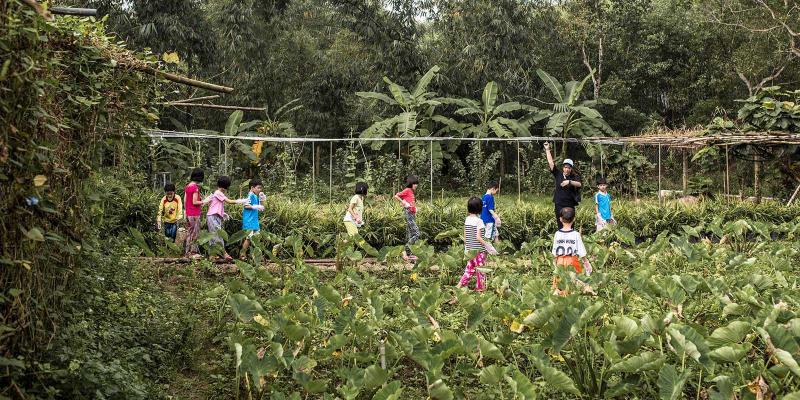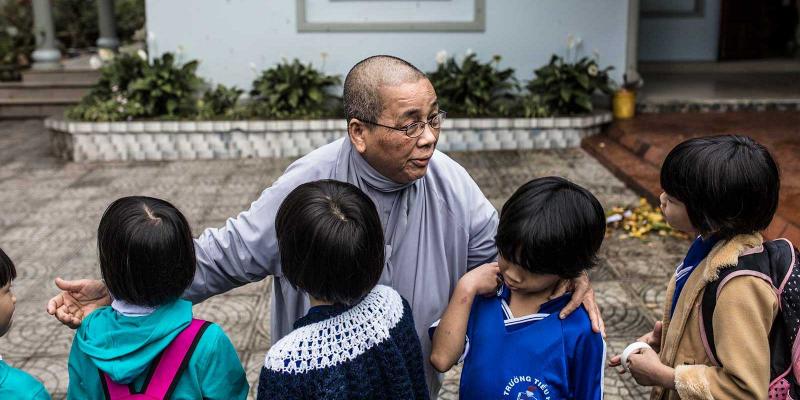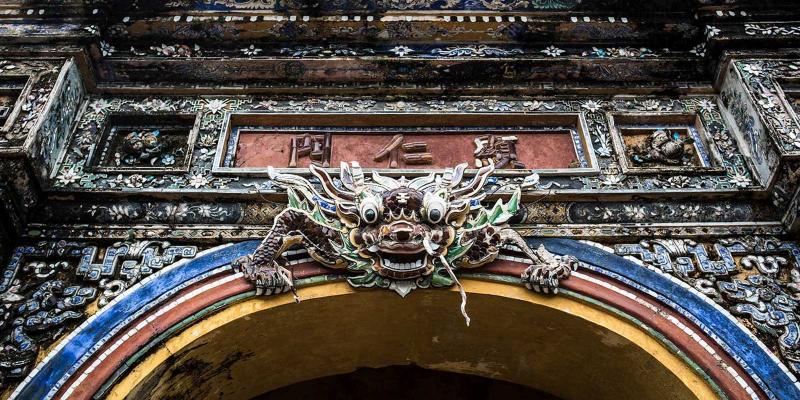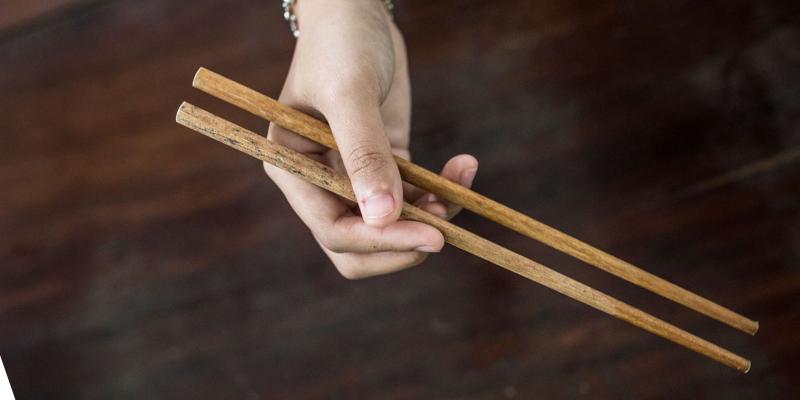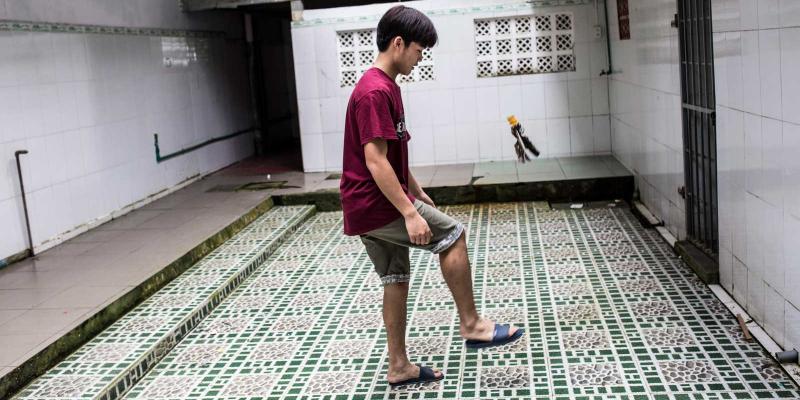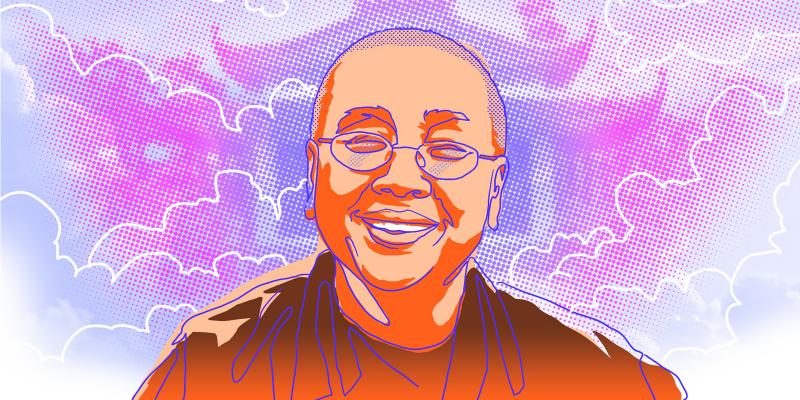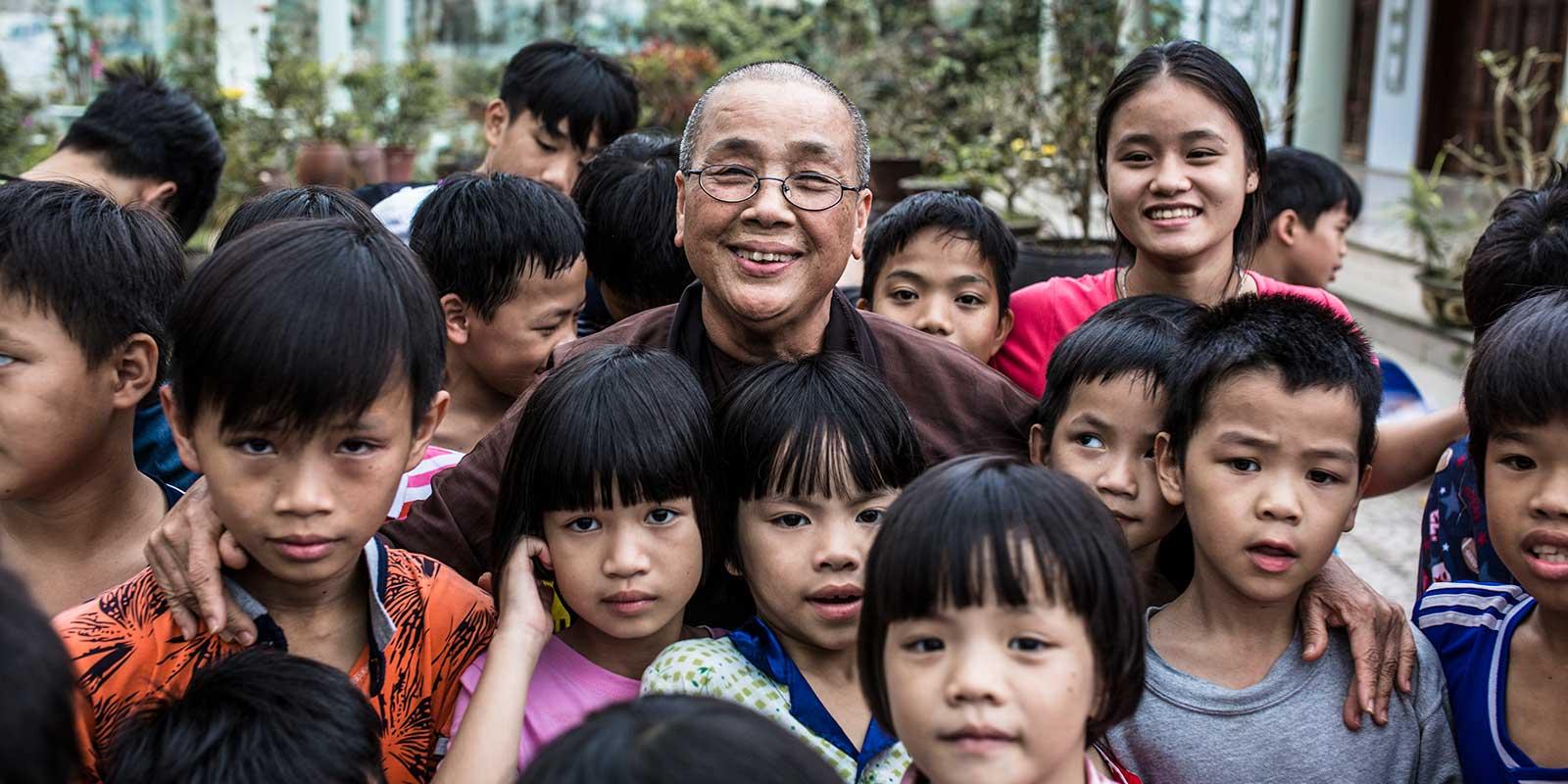
”Children are my saplings that I give sun and water to every day, so they can grow into trees that offer shade and nourishment to others. I am over 70, but I still feel like a child. That’s probably why I love them so much,” says Minh Tú. The terrible experiences during the Vietnam War led to her becoming a Buddhist nun and devoting her life to helping vulnerable children.
Minh Tú grew up during a war in Vietnam that carried on for several decades. Before the war, many in North Vietnam fought for almost ten years against France. After that the country was divided into North and South Vietnam and a 20-year war began, with the US helping South Vietnam. In the end, the war was won by the North Vietnamese.
Becoming a nun
Every other week, Minh Tú’s family visited a Buddhist temple, or pagoda, and prayed. Minh Tú loved how peaceful it was there. All talk outside the pagoda was of war.One day, Minh Tú told her parents that she wanted to become a nun.
“No, you can’t,” said her dad.
“Why not? I love being there,” said Minh Tú.
“You know you have to study for many years to become a nun,” said her mum.
“Yes, but I like reading,” said Minh Tú.
She kept nagging and studied a lot at home. In the end, her parents said she had to quit school because she was just studying all the time.
But Minh Tú didn’t give up. She borrowed books and carried on reading and studying at home.
Then her mum said she could start school again.
“Your dad and I wanted to test you, to see if you were serious,” said her mum.
Minh Tú was so happy! She put all her effort into becoming a nun.
The orphaned children
The war was now getting closer to Minh Tú’s home city of Huế, which was right on the border between North and South Vietnam. When the battle for the city began on 31 January 1968, Minh Tú, who was now aged 21, volunteered to help the injured and those affected. She learned how to give medical treatment and support those who had lost their families.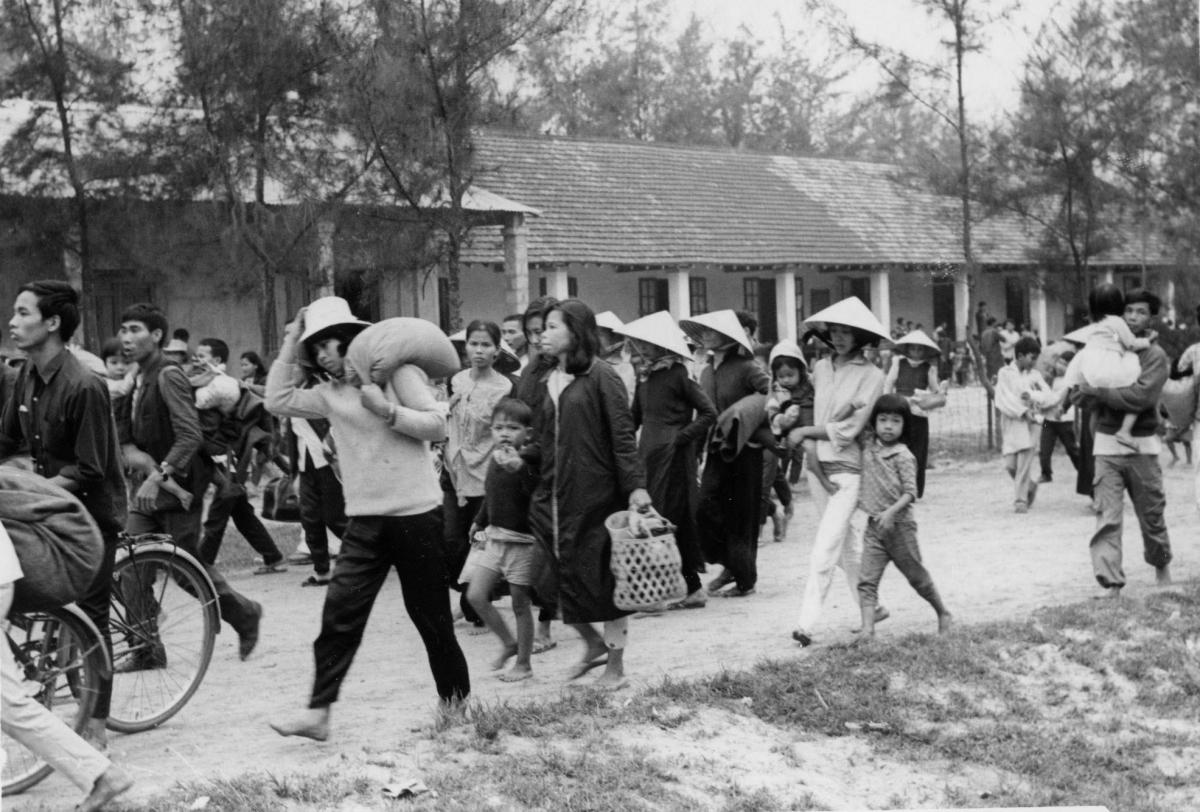
When the battle ended on 3 March 1968, the city of Huế was left in ruins. Tens of thousands of people had been killed and many children had lost their parents.
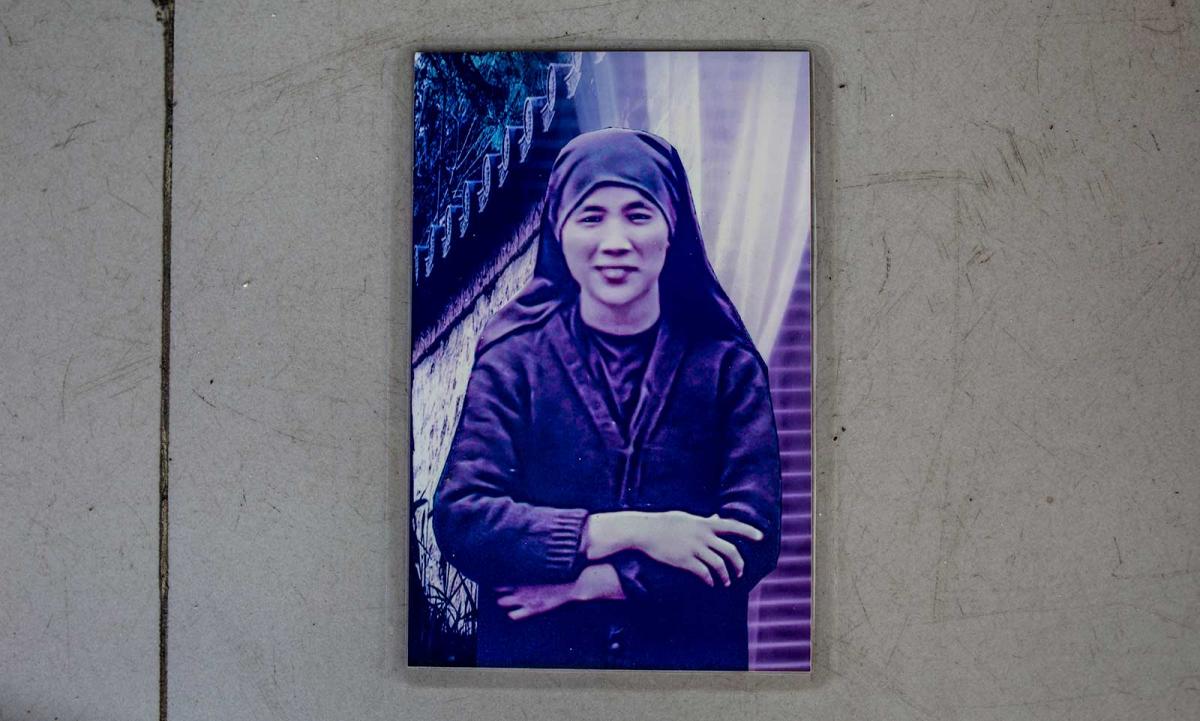
The following year, Minh Tú passed the exam to be a nun. She was sent to serve at one of Huế’s larger pagodas on the edge of the city. One of her first jobs was to help look after the hundreds of children who were living at the pagoda’s children’s home, and who had lost their parents in the fighting. Meanwhile outside the pagoda walls, the war continued for another six years.
The nuns helped out at the city’s hospitals and visited people in parts of the city and villages that had been destroyed by bombing. They gave them food, water and health care. They helped people who were trying to escape the fighting. Many had lost everything. Minh Tú prayed every day for the war to end. She didn’t want to see any more fighting or suffering.
War ends
When the war came to an end in 1975, the country united. There were many bombs and mines left lying in the countryside and rice fields. Many farmers and children were killed or seriously injured in explosions.During the war, the US had sprayed large areas of the country with a toxic substance called Agent Orange. The toxin made many people ill, and some died. Children were born with disabilities because of the toxin, even long after the war had ended.
For Minh Tú, the end of the war meant that she had to move. The head nun at her pagoda wanted Minh Tú to follow in her footsteps.
“It’s time for you to lead other nuns at another pagoda,” said the head nun.
“Gladly, I want to continue the work we’ve been doing here,” said Minh Tú.
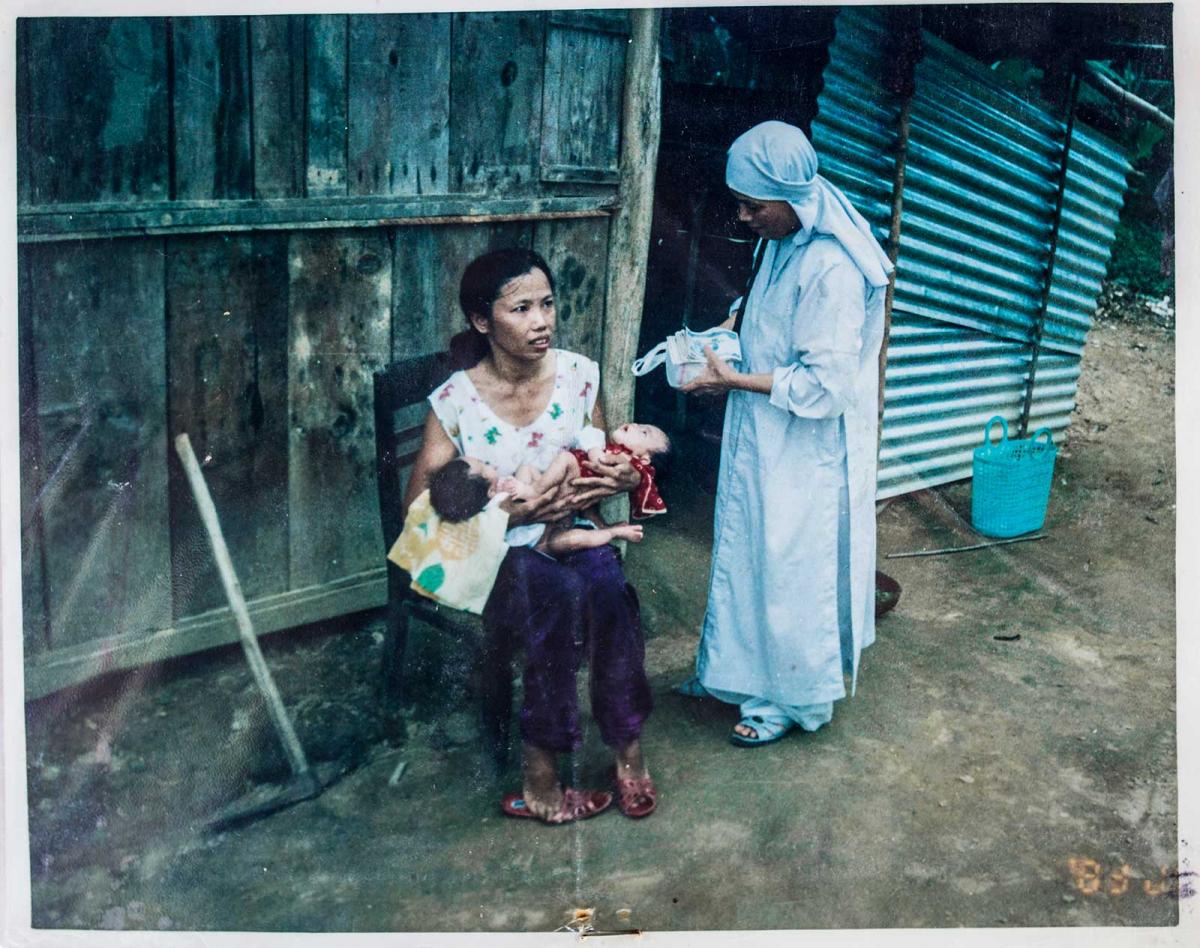
That was how Minh Tú found herself at Duc Son pagoda, south of Huế. For the first few years, Minh Tú worked with the nuns at Duc Son, visiting people who were living in poverty in the local villages. The nuns gave the villagers food and medicine. They helped farmers who had been injured by bomb explosions in the fields, and when the Huong River flooded, the nuns supported those who had lost their homes and harvests.
Minh Tú often went hungry, because she gave almost everything she had to others who she thought needed food and money more than she did. Rumours of her kindness and work with the poor spread.
Children’s home opens
The children’s home at the pagoda where Minh Tú used to live was closed down. The Vietnamese government said the children’s home wasn’t needed, and they pulled it down and built a school.But out in the rural areas, Minh Tú was still seeing a lot of orphaned children. Sometimes the children’s relatives begged her to look after the children. “I can’t, we have nothing to give them,” was Minh Tú’s reply.
But soon Minh Tú felt she just couldn’t say ‘no’ any longer. She loved children, and cried inside every time she saw children going without food, or being forced to work or not having the chance to go to school.
“We have to open a children’s home,” she finally told the nuns at the pagoda.
“We’ll do as my teacher did at the pagoda I used to live at. We’ll give these children love. I wish they all had parents, but they don’t, and we have to do what we can for them,” said Minh Tú.
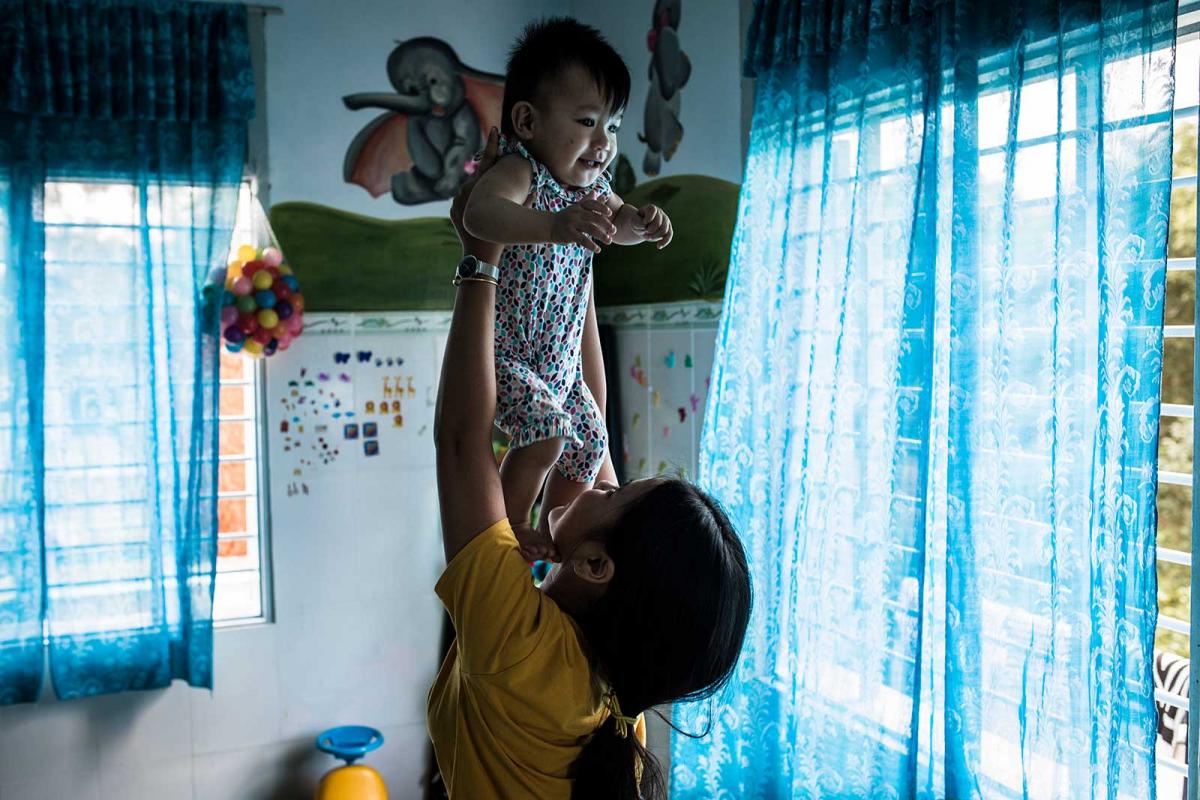
Live your true self
The Duc Son pagoda took in one child at a time. Their reputation quickly spread, and more and more children came to live at the pagoda. After a major flood in Huế and the surrounding villages, there were 250 children at the pagoda. Today there are 130 children here.Lots of people came who wanted to adopt the children, but Minh Tú said no. “I want the children to feel loved and safe, to go to school and possibly university. They will learn to respect one another, live in peace and live their true selves.”

Some of the first children who came to the pagoda are now adults. They have jobs and have been to university but they still come back.
“Children are my saplings that I give sun and water to every day, so they can grow into trees that offer shade and nourishment to others. I still feel like a child myself. That’s probably why I love them so much,” she says.
Text: Erik Halkjaer
Photo: Jesper Klemedsson
Related stories
Långgatan 13, 647 30, Mariefred, Sweden
Phone: +46-159-129 00 • info@worldschildrensprize.org
© 2020 World’s Children’s Prize Foundation. All rights reserved. WORLD'S CHILDREN'S PRIZE®, the Foundation's logo, WORLD'S CHILDREN'S PRIZE FOR THE RIGHTS OF THE CHILD®, WORLD'S CHILDREN'S PARLIAMENT®, WORLD'S CHILDREN'S OMBUDSMAN®, WORLD'S CHILDREN'S PRESS CONFERENCE® and YOU ME EQUAL RIGHTS are service marks of the Foundation.



